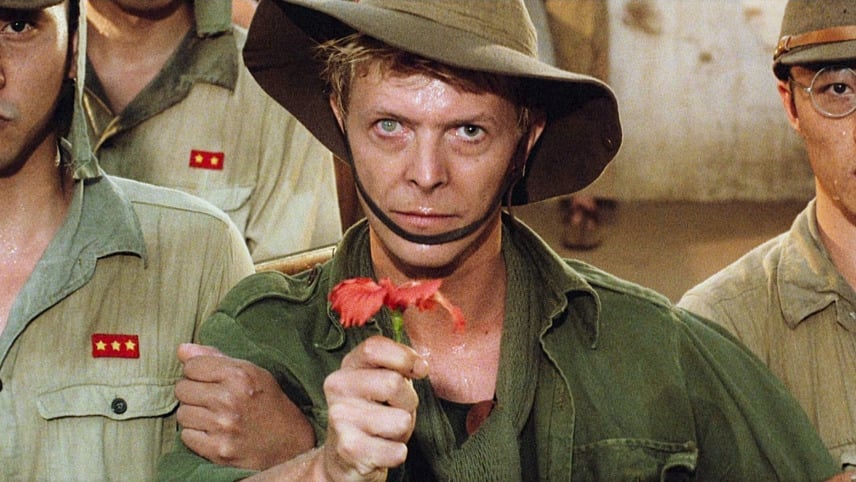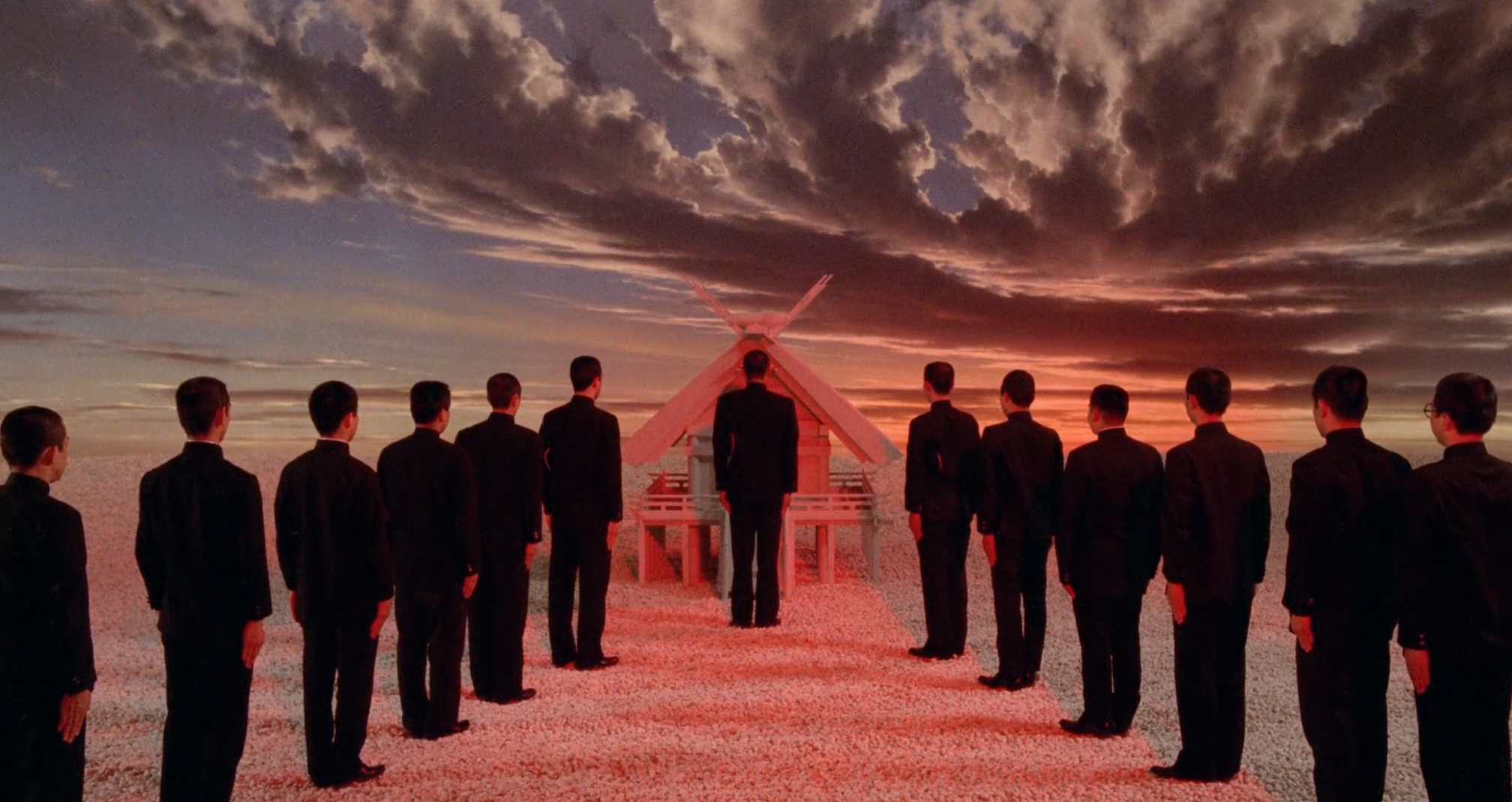The tragic irony of war — that, if battling soldiers had been born in any other time or place, they may well have been friends with each other — takes center stage in this brilliant drama set in WWII-era Java. It's a theme best encapsulated by Captain Yonoi (Ryuichi Sakamoto in his film debut), the bushido code-following commandant of a Japanese POW camp: “How wonderful it would have been if we could have invited all of you to a gathering under our cherry trees,” he muses to the titular British Lieutenant Lawrence (Tom Conti), one of his prisoners.
Lawrence is the camp’s mediator, and not just because he’s fluent in Japanese; in the culture clash microcosm that is the camp, he is uniquely understanding of his captors’ way of life. That earns him special privileges of sorts from the camp’s often brutal enforcer (Takeshi Kitano), but this pales in comparison to the instant partiality with which the charismatic Major Jack Celliers (David Bowie) enjoys, courtesy of a smitten yet deeply repressed and tormented Yonoi. This psychosexual undercurrent bubbles furiously throughout Merry Christmas, Mr. Lawrence, deepening its (already poignant) lamentations about war’s humanity-stripping effect and the self-imposed prisons that are honor and shame.
Genre: Drama, History, War
Actor: Alistair Browning, Arthur Ranford, Colin Francis, Daisuke Iijima, David Bowie, Grant Bridger, Hideo Murota, Hiroshi Mikami, Ian Miller, Jack Thompson, Johnny Ohkura, Kan Mikami, Rokkō Toura, Ryuichi Sakamoto, Ryūnosuke Kaneda, Takashi Naito, Takeshi Kitano, Tamio Ishikura, Tom Conti, Yūji Honma, Yūya Uchida
Director: Nagisa Ōshima


